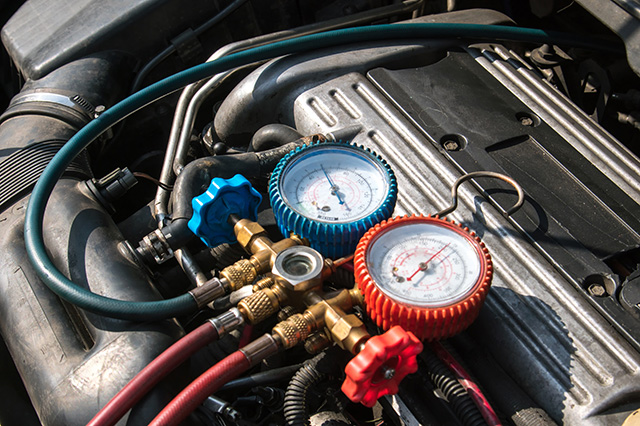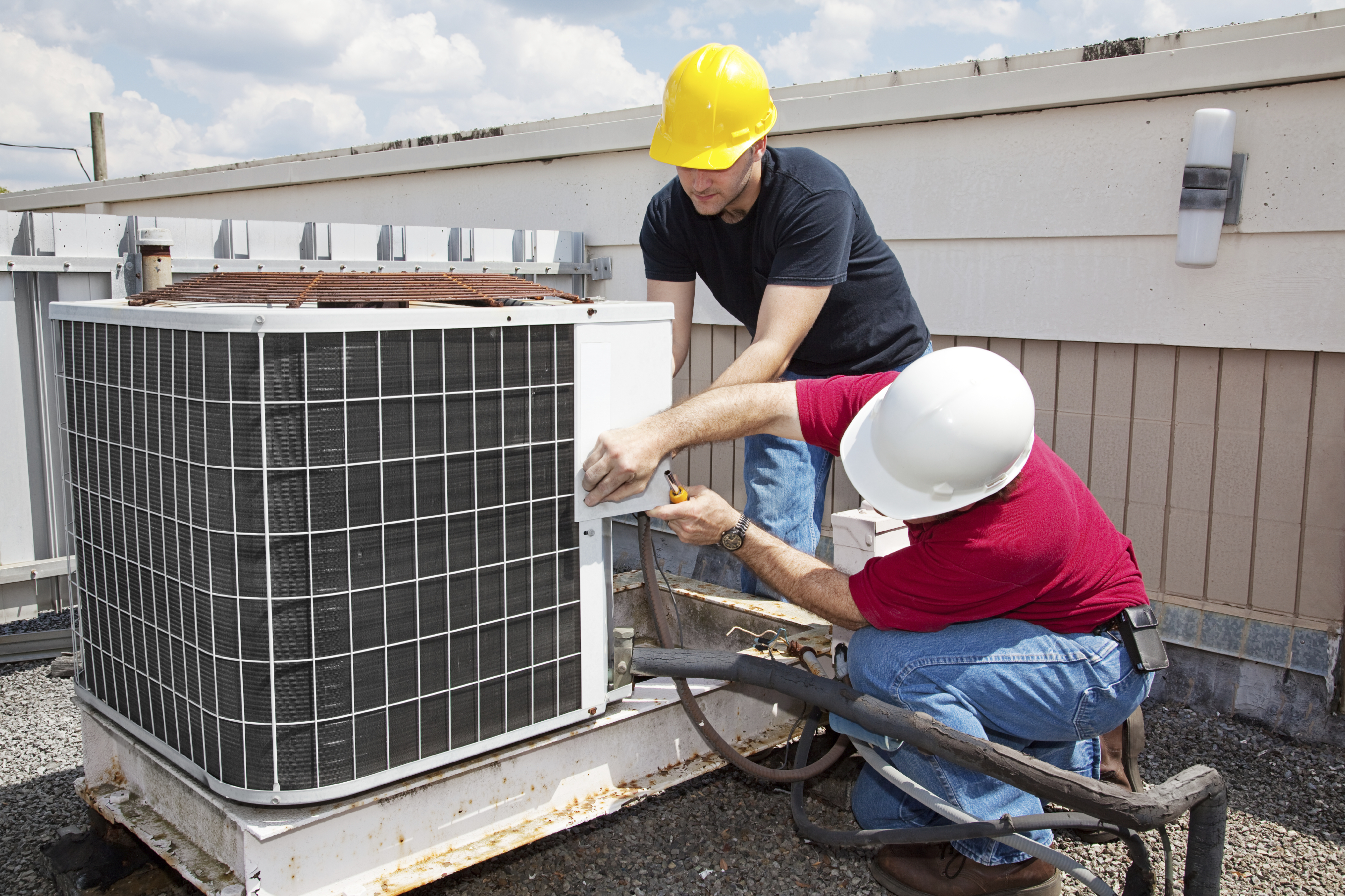Did you know that approximately 75% of property owners experience air conditioning noise concerns at some time? When your air conditioner begins making unusual noises, it can be rather turbulent to your tranquility and convenience.
From rattling and buzzing to screeching and banging, these noises can show underlying troubles that need focus. Recognizing the resource of the sound is vital for reliable repair work and guaranteeing your air conditioner operates successfully.
So, if you're tired of bearing with irritating AC sounds interrupting your harmony, there are services available.
Secret Takeaways
- Normal maintenance is important to attend to typical air conditioning sound resources like ductwork issues and defective electric motors.
- Address shaking sounds by inspecting for loosened parts, preserving follower motors, and adding vibration isolation pads.

- Screeching and banging sounds can be dealt with by checking belts, fan blades, and compressor coils for concerns.
- Repair AC noise troubles by performing visual examinations, applying soundproofing methods, and fixing for obstructions.
Common A/c Sound Sources

If your a/c system is making uncommon noises, it could be because of among a number of usual sources.

One regular culprit is issues with the ductwork. In time, ducts can establish leaks, loose connections, or even clogs. These problems can trigger air to flow erratically, bring about whistling or rattling sounds. A complete ductwork examination by a professional can assist recognize and correct these problems, restoring your system's smooth procedure.
An additional usual resource of sound in air conditioning systems is a damaged motor. The motor is a critical element that drives the followers and various other moving components within the system. If the motor is worn or harmed, it can create grinding, squealing, or clunking sounds. In such situations, electric motor substitute might be required to get rid of the resource of the disturbance. Normal maintenance and prompt motor replacement when required can help keep your air conditioning system running quietly and successfully.
Detecting Rattling and Buzzing Sounds
To deal with rattling and humming noises in your air conditioning system, start by evaluating the elements that might be creating these sounds, such as loosened parts or damaged components. Resonance seclusion is key in dealing with these concerns. Look for any type of loose screws, bolts, or panels that might be vibrating against each other throughout operation. Tightening up these can frequently alleviate the rattling sounds.
In addition, check the follower electric motor for any type of indicators of deterioration. Regular fan motor upkeep, such as lubrication and cleaning, can help reduce humming noises brought on by friction or breakdown.
If the rattling persists after examining and tightening elements, think about including resonance seclusion pads or places to take in the excess vibrations. These pads serve as a barrier between the shaking components, minimizing the noise. Bear in mind that dealing with these noises immediately can avoid additional damage to your a/c system and ensure its peak efficiency.
Dealing With Squealing and Banging Sounds
When dealing with squealing and banging noises in your a/c system, beginning by identifying the source of the sounds with a comprehensive examination of the unit's parts. Inspect the belt tension as well as the electric motor bearings, as loose belts or damaged bearings can bring about squealing noises. Examine the fan blade for any kind of obstructions or damages that could trigger banging sounds when the fan revolves. In addition, analyze the compressor coil for any debris or problems that could be creating the noises.
To attend to squealing sounds associated with belt stress, readjust the tension following the maker's guidelines to see to it it's within the advised array. If the motor bearings are the wrongdoer, think about lubing them if possible; or else, they might require to be changed. For banging noises caused by follower blade concerns, repair or change the harmed blades promptly. When it pertains to the compressor coil, cleaning it thoroughly can usually settle any noise-related problems. By dealing with these prospective resources of screeching and banging sounds, you can restore your a/c system to its best operating state.
Tips for Fixing Cooling Noise
When confronted with cooling sound problems, start by conducting an aesthetic examination of the device's parts for any visible signs of damages or wear. Search for loose parts, damaged belts, or particles that may be creating the noise. If you notice any kind of problems, ensure to tighten up loosened elements, change harmed parts, and clean any particles to see if the noise enhances.
To address cooling sound issues, consider soundproofing strategies to lower the audio transmission from the system. Protecting the wall surfaces around the device, mounting soundproofing panels, or positioning rubber pads underneath the unit can assist wet the sound successfully.
Normal upkeep is essential to avoid cooling sound. Be certain that the unit is clean, moisturized, and well-maintained to decrease possible problems. Troubleshooting steps like inspecting the follower blades and electric motor for any type of obstructions can additionally assist identify and deal with sound troubles. For small issues, DIY options such as tightening screws or readjusting parts may settle the sound without the requirement for specialist support.
Ensuring Efficient Air Conditioner Procedure
Ensure your air conditioner operates efficiently by scheduling regular maintenance checks and maintaining the device tidy and well-lubricated. Guaranteeing your a/c system functions at its best not only decreases noise however likewise lowers energy intake. To attain this, implement sound reduction methods such as placing vibration pads under the device to dampen sound transmission and ensuring all components are firmly tightened up. Additionally, clean or replace air filters on a regular basis to stop air flow obstructions that can stress the system and boost noise degrees.
Energy usage optimization is very important for effective AC procedure. Establish your thermostat to an appropriate temperature to prevent exhausting the system. Use ceiling fans to help flow awesome air more effectively, permitting you to elevate the thermostat a little without compromising comfort. Take into consideration mounting a programmable thermostat to change temperatures immediately when you're away. By following these strategies, you can preserve a comfy indoor environment while decreasing power expenses and sound levels.
Frequently Asked Inquiries
Can A/c Sound Degrees Affect the Top Quality of Indoor Air?
High a/c noise levels can influence interior air top quality by contributing to noise pollution, which can impact your wellness.
To resolve this, consider soundproofing options to decrease the sound from your a/c system.
Exists a Connection Between Cooling Sound and Power Efficiency?
When it involves air conditioning noise and energy efficiency, there's undoubtedly a relationship.
The loud noises produced by your AC device can show inefficiencies that bring about enhanced energy usage.
By dealing with and decreasing the environmental pollution, you can improve the total efficiency of your system.
How Can I Lower Cooling Noise Without Endangering the Cooling Performance?
To reduce cooling noise without endangering cooling performance, consider soundproofing services like acoustic insulation.
You can optimize efficiency by adjusting the system for performance while moistening undesirable noises.
Try making sure all elements are correctly mounted and kept, and look for loose parts that might be creating too much sound. ac tune up
Are There Any Specific Regulations or Standards Relating To Appropriate Sound Levels for A/c Units?
When it comes to air conditioning units, there specify regulations and guidelines in position to ensure conformity with acceptable sound levels. These criteria aid receive a comfy atmosphere without triggering disturbances.
Laws relating to noise degrees for cooling devices differ depending upon location, but generally concentrate on reducing audio discharges to a degree that doesn't interrupt daily activities. It is essential to be conscious of these standards to make sure your device fulfills the required standards.
What Are Some Long-Term Maintenance Tips to Prevent A/c Sound Issues in the Future?
To avoid air conditioning noise issues long-term, ensure you stick to normal maintenance. Tidy or change filters, check for loosened components, and maintain the system clean.
Consider soundproofing methods like including insulation around the unit. By staying on top of upkeep and taking steps to minimize noise, you can enjoy a quieter and much more effective air conditioning system in the future.
Conclusion
Now that you have determined the common sources of air conditioning noise and found out just how to detect and fix them, you can delight in a quieter and a lot more efficient cooling system.
Keep in mind to routinely look for any type of unusual sounds and address them without delay to avoid any type of additional damage.
By dealing with your AC system, you can ensure it operates efficiently and successfully for years ahead.
